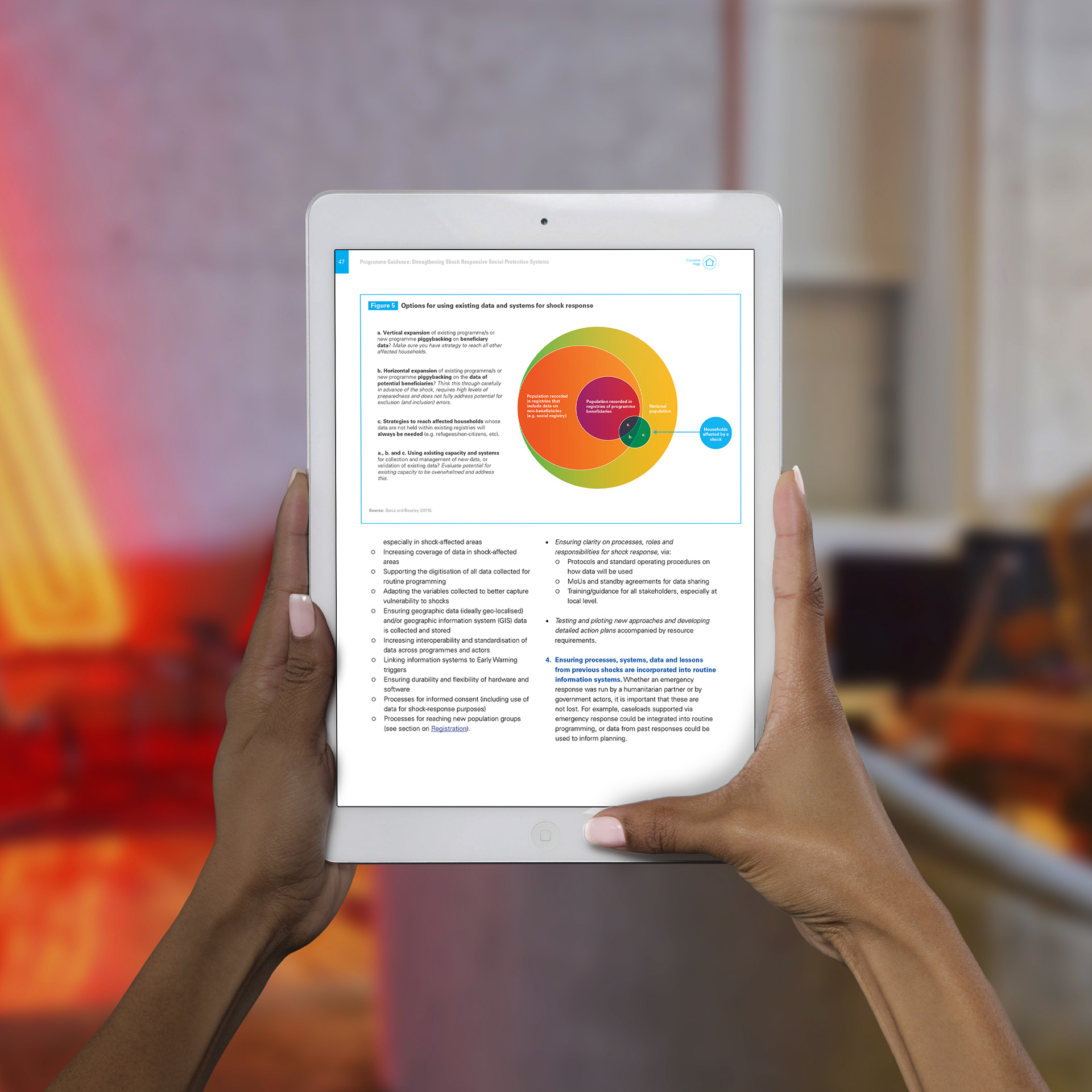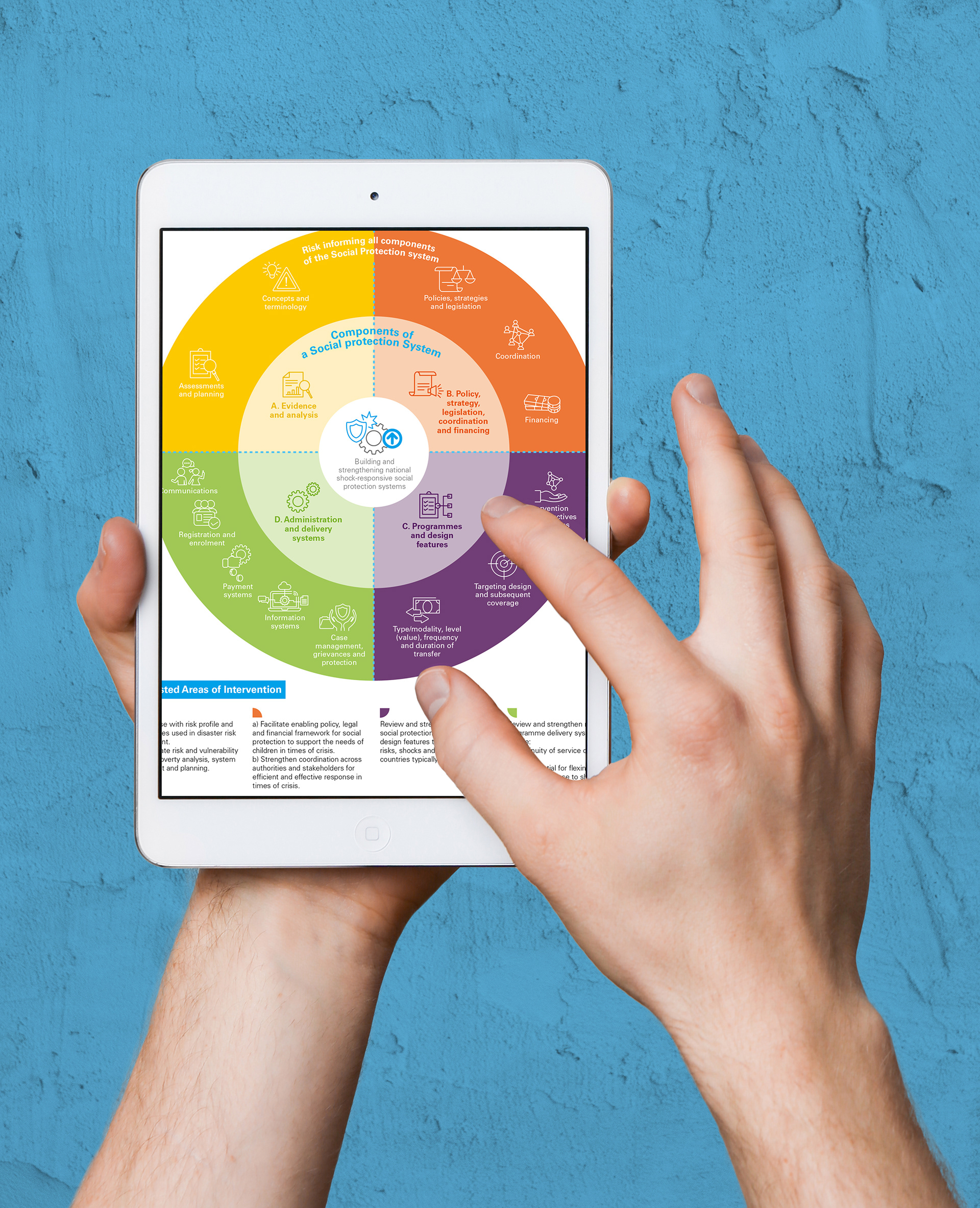



From the growing number and severity of climate disasters to ongoing political upheaval, the number of children and families living in communities vulnerable to shocks and facing emergency situations is growing, with potentially devastating impacts on children and their childhoods. When crisis hits, effective social protection support is often a crucial factor in determining whether children can quickly return to normality or their life paths will be permanently altered. UNICEF, along with partners such as the World Bank, European Commission, International Labour Organisation, World Food Programme and United Nations High Commissioner for Refugees, is increasing our focus on supporting governments to strengthen social protection systems so they are ready to respond. This guidance supports this transition, outlining UNICEF’s approach to shock responsive social protection and providing practical tools and resources. We hope it will aid UNICEF colleagues as well as partners inside and out



